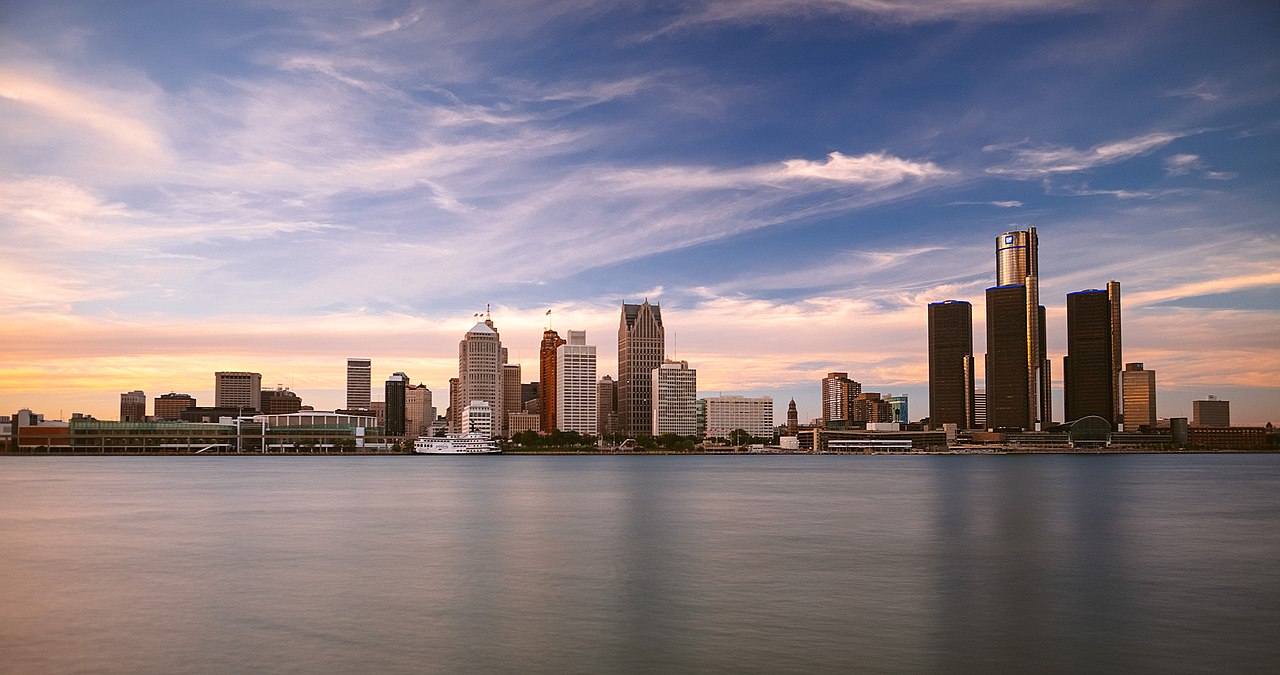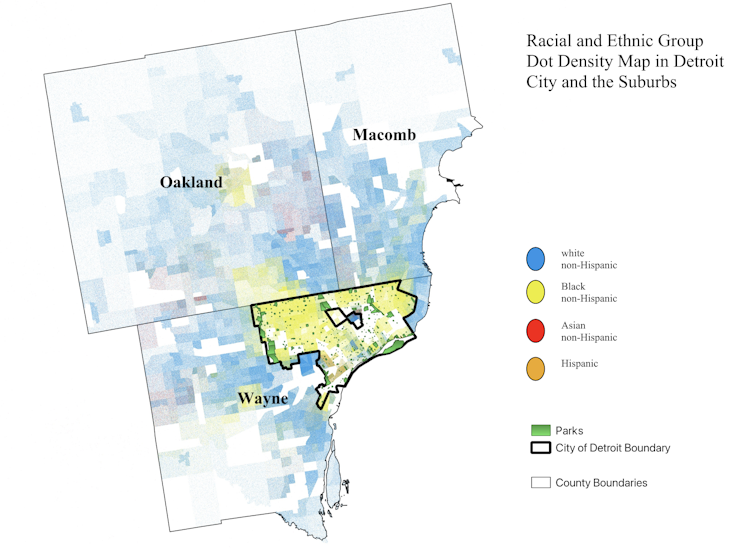
FILE: Detroit skyline, as viewed from Windsor, Canada. (Photo By Michael Tighe/Wikimedia Commons, CC0)
The Detroit metropolitan area is one of the most segregated areas in the United States.
But that is slowly starting to change for some racial groups.
The slow change is driven by the fact that the region became more racially and ethnically diverse between 2010 and 2022.
However, change is not happening uniformly, and it remains to be seen whether the trend will continue – or if old social divides will reassert themselves.

United States Census, CC BY
As a sociologist who studies issues related to urban sociology and race and ethnicity, I wanted to know more about where different groups were living around the region. I examined data from the U.S. Census Bureau to explore where racial and ethnic groups live in the city of Detroit, and how much the different groups mix.
Detroit shrinks, suburbs grow
Focusing on racial and ethnic groups that made up at least 1% of the population, and using the most up-to-date publicly available data, I found the city of Detroit’s overall population dropped by 11.3% between 2010 and 2022. Over the same period, the population of the suburban tri-county metro area increased by 3.5%.
Both the city and the suburbs became home to notably more Asian, Hispanic and multiracial people, meaning the area became more diverse overall.
The population of people who identified as white and non-Hispanic grew by 41% in the city but dropped by 9% in the suburbs.
While white people were moving into the city of Detroit, Black people were moving out. The Black population dropped 9% in the city and grew 19% in the suburbs.
Here’s how these shifts affected the way different groups experience living in Detroit and the city’s suburbs.
- During the 10-year period between 2010 and 2020, many Black Detroiters moved to the suburbs, where they live in more diverse neighborhoods with Hispanic and Asian neighbors. Black residents who stayed put in the city during that decade were more likely to be living near Hispanics compared to other groups. The latest available data used to calculate each group’s share in the city shows that the percentage of Black population decreased from 82% in 2010 to 75% in 2022.
- More white people in both urban and suburban Detroit lived in desegregated neighborhoods in 2020 compared to 2010. This trend is especially true in the city, where white people are still a relatively small share of the population despite their recent gains. The population of white people in the city increased from 8% in 2010 to approximately 12%.
- Both Asians and Hispanics were more likely to live in neighborhoods with higher shares of people who share their ethnicity in 2020 than they were in 2010. In other words, their neighborhoods – in both the city and the suburbs – grew more segregated over this 10-year period. In the suburbs, members of these groups were less likely to have white neighbors in 2020 compared to 2010. The Asian population increased from 1% to 3% in 2010, by 2020? while the Hispanic population increased from 6% to 7%.
The rise in segregation may be linked to the initial stages of adjusting to a new environment for recent Asian and Hispanic immigrants. However, immigration is a complex issue, and many factors influence patterns of segregation.
It remains to be seen how these patterns will continue to evolve as Detroit and its suburbs navigate the city’s post-bankruptcy recovery and the region’s broader sociodemographic and economic structural changes.
Future census data, which will include a new race and ethnicity category for people of Middle Eastern and North African origins, will provide us with more nuance on the changing neighborhood demographics and diversity of the Detroit metro area.![]()
Grigoris Argeros, Associate Professor of Sociology, Eastern Michigan University
This article is republished from The Conversation under a Creative Commons license. Read the original article.





















